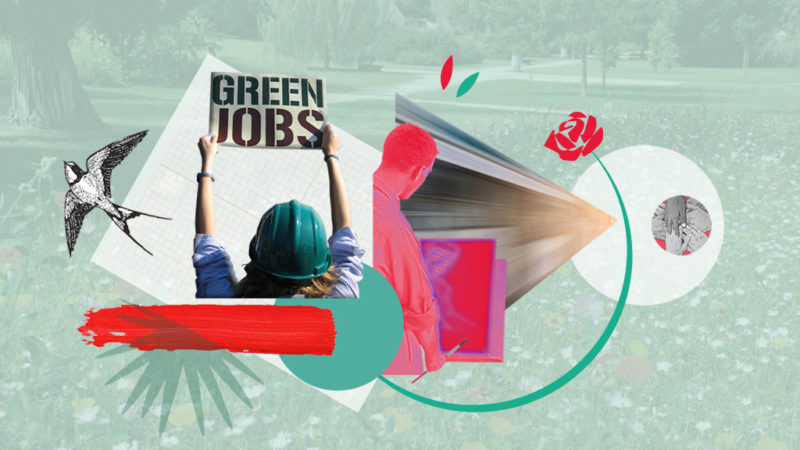
On the eve of the Tories’ Spring Budget, there is a vital opportunity for Labour to define an alternative path. Keir Starmer’s recent speech setting out his vision for Britain’s future rightly made the case that the pandemic has exposed the failed ideology behind this Tory government, and argued that the climate emergency should drive every one of our decisions in how we run the country. But there was something missing. What will he do differently?
Starmer argued for lifting the public sector pay freeze, maintaining the £20 top-up to Universal Credit and increasing funds for local councils. All of these measures would make a difference, but they are the bare minimum that any government should be offering during this crisis. When it came to new policies, there were just two: the British recovery bond, a way of using savers’ money to fund the recovery; and more funding for start-up loans, where he’d give extra funding to an existing scheme, with the aim of creating 100,000 small businesses.
These are good ideas, to be sure, but they’re not enough. They don’t go nearly far enough to meet the scale of the problems that Starmer himself identifies. He harked back to the post-war years: to the gross inequalities exposed by the Beveridge report, and the sweeping reforms of Clement Attlee’s historic Labour government that followed it. If Starmer wants to follow in those footsteps, he needs to offer another sharp break with business as usual.
The good news is that there’s an ambitious set of policies ready and waiting, backed by Labour members across the party and our affiliated trade unions. The green new deal is a compelling response to the crises we face. It’s about mobilising our entire economy to tackle the pandemic, climate emergency and economic injustices at the same time. In response to Labour’s environment, energy and culture 2020 interim report, Labour for a Green New Deal has set out proposals for a much more ambitious green recovery from Covid. Hundreds of members have written to the national policy forum submitting these recommendations.
We need firm commitments to expand democratic public ownership across industry, transport and utilities. The private sector isn’t ready to lead the energy transition, so the public sector must take charge. We need a programme of green jobs in response to the unemployment crisis and as part of a just transition away from polluting industries. We need universal basic services to tackle inequality and emissions by providing green public transport, public housing, broadband, healthcare and childcare for all. We need to support decarbonisation internationally by transferring resources and cancelling debt in the Global South.
With this vision, Starmer could galvanise Labour members and supporters around his leadership. It was after a groundswell of support that the green new deal entered the 2019 manifesto and it’s an idea that continues to resonate across the party. Since then, members have repeatedly restated their enthusiasm for ambitious climate policy. 70% of respondents to Labour’s green economic recovery consultation endorsed Labour for a Green New Deal’s proposals. LabourList’s poll of members in 2020 showed that the policy of achieving net-zero carbon by 2030 was ranked by members to be the second-most important from the party’ 2019 manifesto.
The Tories are hamming up their green credentials, including co-opting the ‘green industrial revolution’ slogan and promising spending in previous Labour heartlands. It’s no longer enough for Labour just to say we’re taking the climate crisis seriously. We need to show it with the most ambitious plans, putting justice at the core.
This Budget offers the Tories their first opportunity to detail their post-pandemic plan. It gives Keir Starmer the opportunity to put clear water between his Labour Party and the Tories on the defining crises of our generation. At the heart of Labour’s alternative budget should be proposals for major investment in a mass programme of green jobs that take on the unemployment and climate crises with the same measures. This is Starmer’s opportunity to expose the half-baked, piecemeal, techno-optimism of Johnson’s ‘green industrial revolution’ by offering a genuinely alternative vision for green recovery that puts working people first.




More from LabourList
‘Why solidarity with Ukraine still matters’
‘Ukraine is Europe’s frontier – and Labour must stay resolute in its defence’
Vast majority of Labour members back defence spending boost and NATO membership – poll